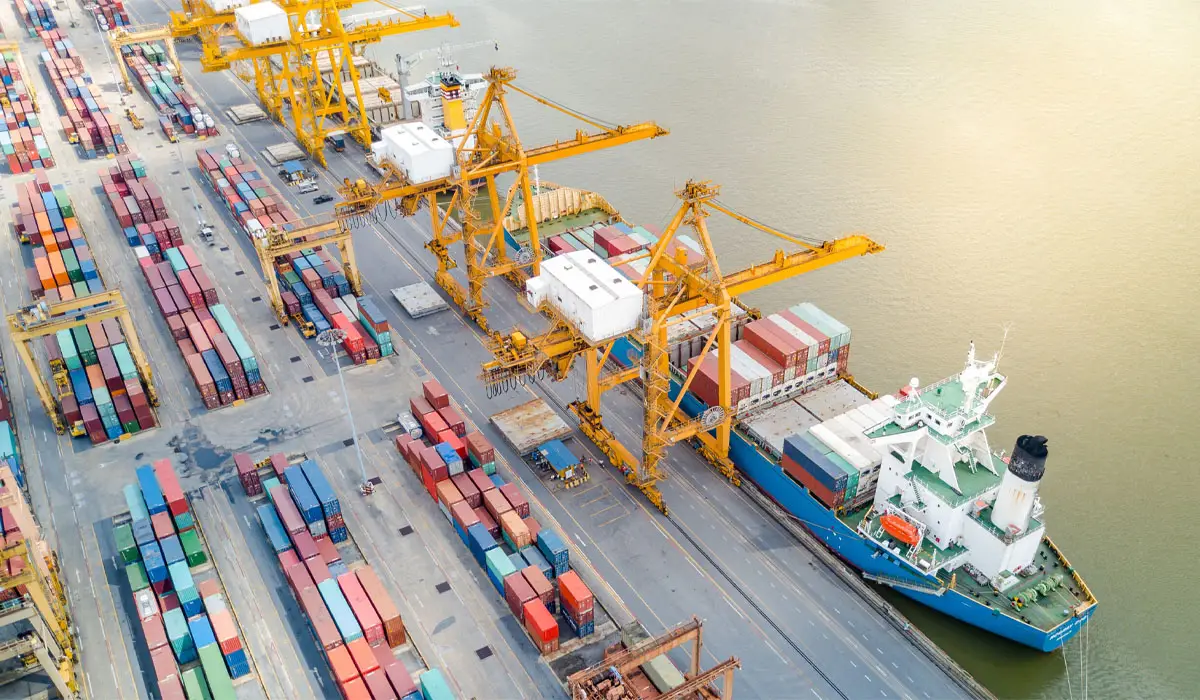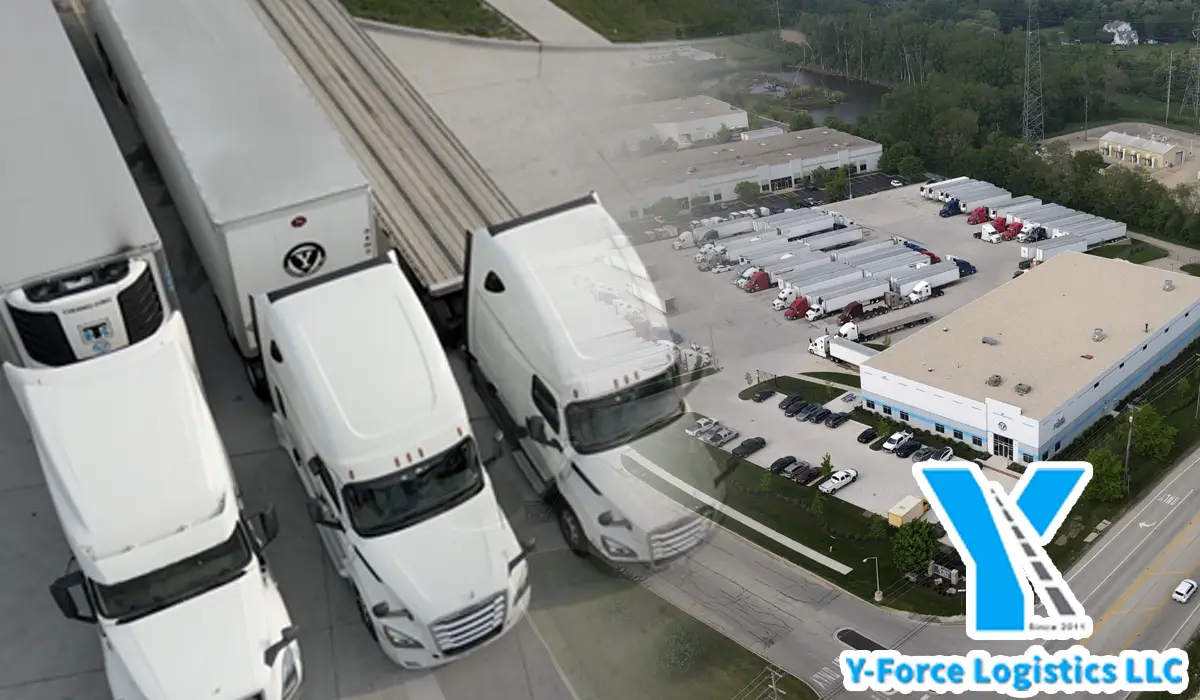
Learning The Basics Of Freight Forwarding
The First Steps Towards Mastering Freight Forwarding
Moving goods around the world is a big task that needs careful planning and the right help. At Y-Force Logistics LLC, we specialize in making sure your items get where they need to go without a hitch. We handle everything—choosing the best way to ship your goods, dealing with customs, and making sure everything complies with international rules. Looking for someone to help with your shipping needs? Visit us at Y Force Logistics LLC or give us a call at (800) 707-6575 to start the conversation. If you’re ready to get going, you can also get a free quote right away.
Understanding Freight Forwarding
At its essence, what is international freight forwarding? It’s a specialized service that acts as a critical bridge in global trade, enabling goods to move from one country to another through a complex web of transportation modes. Freight forwarding is much more than just shipping; it’s a comprehensive logistics solution that encompasses the planning, coordination, and execution of international trade operations. This service is vital for businesses of all sizes that aim to reach markets beyond their local borders, providing a pathway for products to navigate the global marketplace efficiently and effectively.
The role of international freight forwarders extends into strategic territory; they not only facilitate the physical movement of goods but also act as advisors, customs brokers, and logistics experts. Their expertise is crucial in deciphering the intricacies of trade regulations, ensuring compliance, and optimizing supply chain strategies. This makes them indispensable partners for companies looking to expand their footprint in the international arena.
How It Works
The process of freight forwarding is intricate, involving multiple stages and stakeholders. Here’s a simplified overview of how it typically unfolds:
- Assessment and Planning: The journey begins with an assessment of the client’s shipping needs, including the type of goods, their destination, and the preferred timeline. Based on this information, the freight forwarder devises a plan that outlines the most efficient and cost-effective route and transportation mode(s).
- Carrier Selection and Booking: With the plan in place, the freight forwarder selects and negotiates with carriers (airlines, shipping lines, rail operators, and trucking companies) to secure space and confirm schedules. This stage may involve booking several different carriers across multiple modes of transport.
- Documentation and Compliance: One of the most critical roles of a freight forwarder is managing the complex documentation required for international shipments. This includes export documents, bills of lading, invoices, and customs paperwork. Ensuring accuracy and compliance with all regulatory requirements is paramount to avoiding delays or penalties.
- Warehousing and Consolidation: Often, goods need to be stored temporarily or consolidated with other shipments to optimize transportation costs. Freight forwarders manage these logistics, utilizing their warehousing facilities and networks to streamline the process.
- Transport and Tracking: As the goods are transported, the freight forwarder monitors their progress, providing updates to the client. This oversight continues until the shipment reaches its final destination, ensuring any issues are promptly addressed.
- Delivery and Final Mile: Upon arrival, the freight forwarder coordinates the customs clearance process and arranges for the final delivery to the recipient, completing the international shipping process.
Throughout these stages, the freight forwarder acts as the central point of coordination, leveraging their expertise and network to navigate the complexities of international logistics. This orchestration is what makes freight forwarding an invaluable service in the realm of global trade, ensuring goods move seamlessly across borders while adhering to all regulatory requirements.
The Players In Freight Forwarding
When you trade with people around the world, you need to know who controls the flow of your goods. This section talks about the main players in freight forwarding: the companies that plan the route your shipment will take and the international experts who make sure it gets where it needs to go. We are going to talk about what makes these players so important and how they add value beyond just getting people where they need to go.
Freight Forwarding Companies
Freight forwarding companies are essential to the smooth operation of the global supply chain, acting as the critical link between businesses and the international market. These companies serve as expert consultants and logistics orchestrators, ensuring that goods move from point A to point B efficiently, affordably, and compliantly. They combine various transportation methods—like air, sea, rail, and road—to create the most effective route for each shipment, considering factors such as speed, cost, and environmental impact.
Their expertise extends into the intricacies of international trade laws and customs regulations, making them invaluable in avoiding common pitfalls associated with global shipping. By understanding the specific requirements and challenges of different countries, freight forwarding companies ensure that shipments meet all necessary legal standards, helping to prevent costly delays or legal issues.
Moreover, these companies have established extensive networks that allow them to negotiate favorable terms with carriers, ensuring that their clients’ goods are prioritized and handled with care. This network, combined with their industry knowledge, enables freight forwarding companies to provide tailored solutions that fit the unique needs of each business, ensuring goods are delivered safely and on time.

International Freight Forwarders
Specializing in the complexities of cross-border logistics, international freight forwarders are the backbone of global trade, offering a suite of services that go beyond transportation to include customs brokerage, warehousing, and comprehensive risk management. Their role is to streamline the entire shipping process, making international trade accessible and manageable for businesses of all sizes.
These forwarders excel at crafting logistic strategies that navigate the challenges of international shipping, such as varying regulations, documentation requirements, and the coordination of multiple carriers. Their services provide peace of mind, ensuring that all aspects of the shipping process, from export to import, are handled with precision and care.
By offering added value services like customs clearance, international freight forwarders remove the burden of complex paperwork and compliance from their clients, allowing businesses to focus on their core operations. The warehousing and distribution solutions they provide further enhance the efficiency of the supply chain, ensuring products are stored safely and delivered to the end customer in a timely manner.
International freight forwarders are more than just service providers; they are also important players in global trade. They have the knowledge and tools to help you deal with the constantly changing world of international logistics. Because they handle all aspects of freight forwarding, businesses can confidently reach across borders and take advantage of new markets and opportunities.
Services Offered By Freight Forwarders
Freight forwarders provide a wide range of services to ensure the smooth transportation of goods across international borders. Here’s a closer look at some of the key services they offer:
Transportation
Freight forwarders utilize various modes of transportation to move goods, selecting the best option based on the shipment’s requirements, including cost, speed, and environmental impact. Here are the primary modes they use:
- Air Freight: Ideal for time-sensitive shipments, air freight is the fastest mode of transport. It’s best suited for high-value, low-volume shipments.
- Sea Freight: For larger, less time-sensitive shipments, sea freight offers a cost-effective solution. It’s the most common choice for international trade, accommodating everything from bulk cargo to containerized goods.
- Rail Freight: Offering a balance between cost and speed, rail freight is an efficient option for land transportation over long distances, especially within continents like Europe and Asia.
- Road Freight: The most flexible mode, road freight is often used for shorter distances and as part of the multimodal transportation chain, providing door-to-door delivery.
Customs And Compliance
Freight forwarders play a crucial role in ensuring that shipments adhere to international laws and regulations by navigating the complexities of customs and regulatory compliance. Here’s how they assist:
- Customs Clearance: Freight forwarders manage the entire customs clearance process, preparing and submitting all necessary documentation to ensure that goods are cleared through customs promptly.
- Regulatory Compliance: They stay up-to-date with international trade laws and regulations, advising clients on any necessary compliance issues, such as import/export restrictions, hazardous materials regulations, and trade embargoes.
- Duty and Tax Calculation: Freight forwarders assist in calculating the duties and taxes applicable to the shipment, helping clients understand their potential financial liabilities.
- Documentation Preparation: They prepare or assist in the preparation of shipping and export documents required for international shipping, including commercial invoices, packing lists, bills of lading, and certificates of origin.
By offering these comprehensive services, freight forwarders play an essential role in the global supply chain, ensuring that goods are transported efficiently and comply with international standards. This not only saves time and reduces the risk of delays or penalties but also allows businesses to focus on their core operations, confident that their logistics needs are in expert hands.
Choosing The Right Freight Forwarder
Evaluating Freight Forwarders
Choosing the right partner is about more than just cost. It’s important to consider their global network, experience in your specific industry, and ability to offer customized solutions. A good freight forwarder should act as an extension of your business, with a deep understanding of your logistics needs.
Certification And Credibility
Freight forwarding certification is a key indicator of a company’s professionalism and reliability. Certifications such as IATA for air freight forwarders and FIATA for international forwarders signify adherence to industry standards and best practices.
The Future Of Freight Forwarding
Trends And Innovations
Digitalization, automation, and a greater emphasis on sustainability are shaping the future of freight forwarding. Technologies like blockchain and IoT are streamlining operations, improving transparency, and enhancing security across the supply chain.
Sustainability Practices
There’s a growing emphasis on implementing eco-friendly practices within freight forwarding. This includes optimizing logistics routes to reduce carbon emissions, investing in green technologies, and adopting sustainable business practices.
Diving into the world of shipping goods internationally can seem overwhelming, but it doesn’t have to be. With the right team by your side, like Y Force Logistics LLC, you can ship your products anywhere in the world with confidence. We’re here to navigate the complex parts of freight forwarding for you, from picking the right transport method to handling all the paperwork. If you’re looking to make your shipping process as smooth as possible, reach out to us. Let’s chat about how we can support your business’s shipping needs. Call us at (800) 707-6575 or get in touch through our website. Let’s take on global shipping together.

